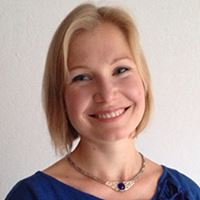"Innovative Sampling Approaches for Hard to Reach Populations: Design of a National Probability Study of Lesbians, Gay Men, Bisexuals, and Transgender Peoples and Network Sampling of Hard to Reach Populations"
Speakers:
Ilan H. Meyer, Williams Distinguished Senior Scholar for Public Policy at the Williams Institute
Mark S. Handcock, Professor of Statistics at UCLA and Director of the Center for Social Statistics
Description:
Come for the exciting seminar then stay for the free lunch and discussion. A seminar led by Ilan H. Meyer followed immediately by a Brown Bag Lunch led by Mark S. Handcock.
Dr. Meyer is Principal Investigator of the Generations and TransPop Surveys. Generations is a survey of a nationally representative sample of 3 generations of lesbians, gay men, and bisexuals. TransPop is the first national probability sample survey of transgender individuals in the United States. Both studies attempt to obtain large nationally representative samples of hard to reach populations. Dr. Meyer will review sampling issues with LGBT populations and speak on the importance of measuring population health of LGBTs and the underlying aspects in designing a national probability survey.
From a contrasting perspective, the field of Survey Methodology is facing many challenges. The general trend of declining response rates is making it harder for survey researchers to reach their intended population of interest using classical survey sampling methods.
In the followup Brown Bag Lunch, led by Mark S. Handcock, participants will discuss statistical challenges and approaches to sampling hard to reach populations. Transgenders, for example, are a rare and stigmatized population. If the transgender community exhibits networked social behavior, then network sampling methods may be useful approaches that compliment classical survey methods.
Participants are encouraged to speak on ideas of statistical methods for surveys.

